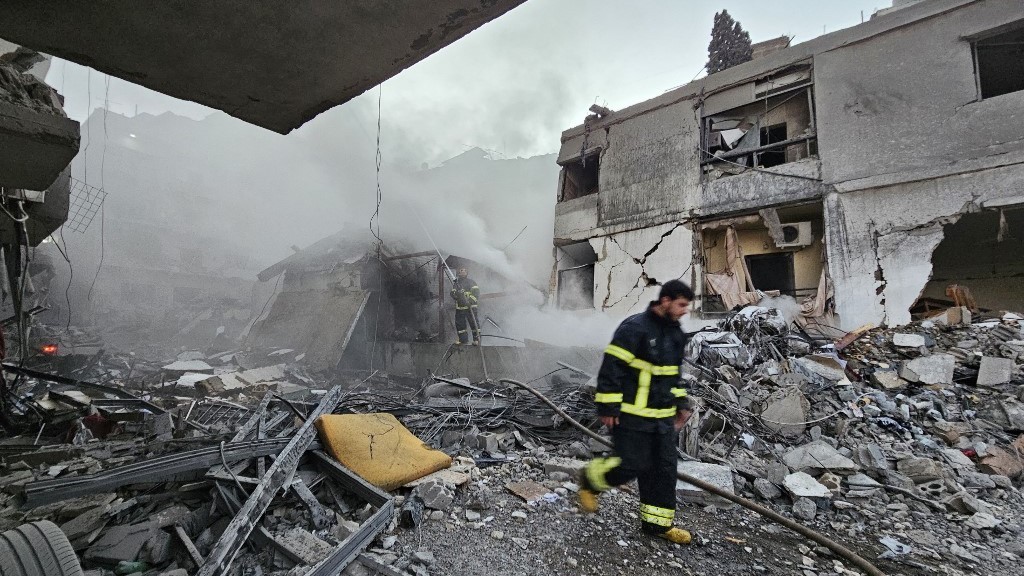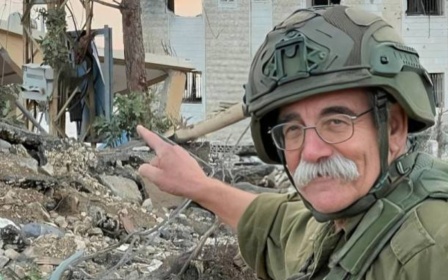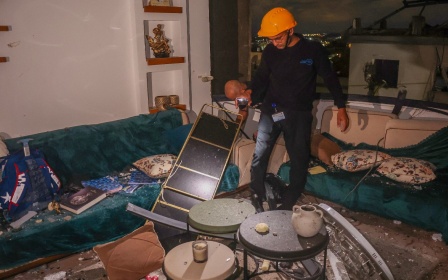Israel pummels Lebanon ahead of expected ceasefire

Dozens of Israeli strikes hit Lebanon on Tuesday even as discussion were ongoing in the two countries to bring about a ceasefire.
Bombing rained down on Beirut's southern suburbs in a salvo that Reuters described as the largest simultaneous attack in the area so far.
The Israeli army also issued expulsion orders in several areas of central Beirut, promising to strike buildings in heavily built up residential and commercial areas. The threats sent thousands of Lebanese fleeing at rush hour, with heavy traffic chocking Beirut's roads.
Israel also warned residents of south Lebanon’s Sour and Saida that they would attack there in the “near future”.
Lebanon's state media said Israeli aircraft targeted the Nweiri district in Beirut three times, the first attack killing seven people and wounding 37. The Mazraa area was also reportedly hit.
New MEE newsletter: Jerusalem Dispatch
Sign up to get the latest insights and analysis on Israel-Palestine, alongside Turkey Unpacked and other MEE newsletters
Meanwhile, Israel said Hezbollah fired "projectiles" into the Haifa bay and Galilee.
Ceasefire talks
Despite the heavy bombardment, international officials were expressing optimism that a ceasefire between the two countries could be reached.
Israeli Prime Minister Benjamin Netanyahu was set to talk to the media on Tuesday evening following cabinet discussions over a ceasefire.
Speaking to reporters at the conclusion of a two-day meeting of G7, Italian Foreign Minister Antonio Tajani said talks to secure a ceasefire between Israel and Hezbollah were going well.
"As a G7 we have worked hard to try to reach a ceasefire in Lebanon... we are on the right path," Tajani said.
The UK also urged the signing of a ceasefire, saying it was “the only way to restore security” for civilians.
“We urge all parties to engage in efforts to reach a ceasefire and indeed a long-term sustainable peace in the Middle East,” Prime Minister Keir Starmer’s spokesman told reporters.
Middle East Eye delivers independent and unrivalled coverage and analysis of the Middle East, North Africa and beyond. To learn more about republishing this content and the associated fees, please fill out this form. More about MEE can be found here.




